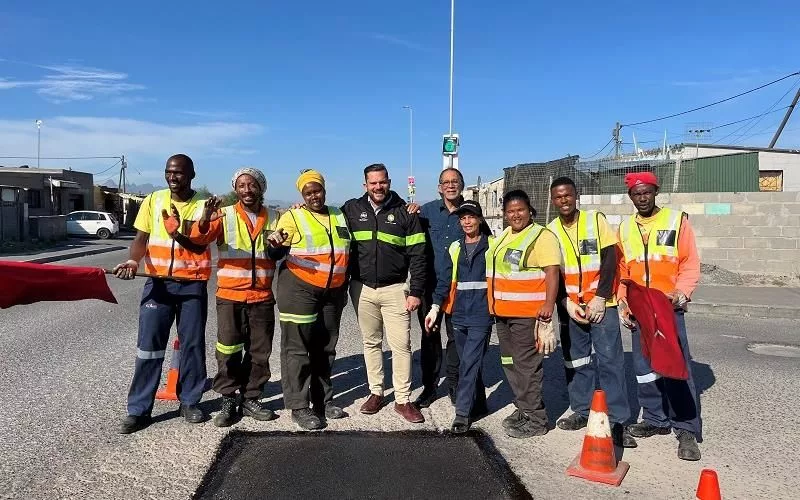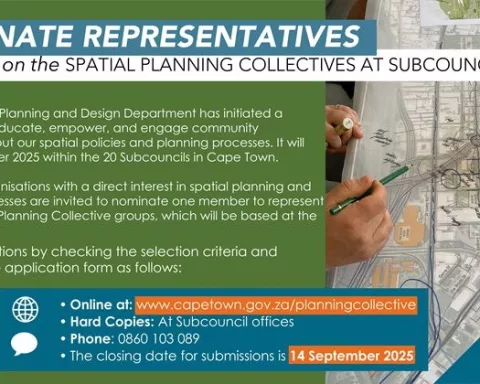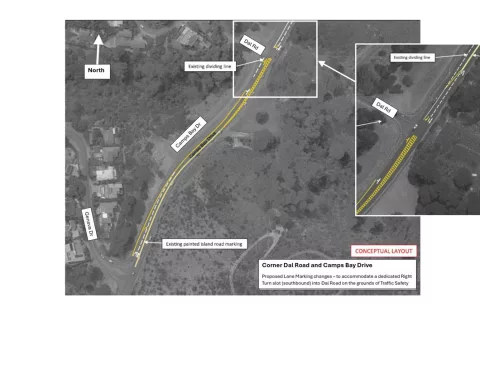Cape Town is taking proactive measures to prepare for the winter season, with a Winter Preparedness initiative that involves various teams working together to safeguard the city. The initiative includes clearing stormwater drains, refurbishing roadways and repairing potholes to prevent flood risks and ensure safer journeys. Citizen participation is also essential to preserving the safety and robustness of the city, and the city’s anticipatory strategy aims to secure a safe and comfortable winter for all. The city is taking action to identify and address potential problems before they emerge, highlighting the significance of community participation and thorough city planning in urban governance.
How is Cape Town preparing for winter?
Cape Town is gearing up for the challenges of the winter season through its Winter Preparedness initiative, which includes various teams working in concert to safeguard the city. The initiative encompasses clearing stormwater drains, refurbishing roadways, and repairing potholes to prevent flood risks and ensure safer journeys. Citizen participation is also essential to preserving the safety and robustness of the city, and the city’s anticipatory strategy aims to secure a safe and comfortable winter for all.
As the temperature starts to plummet and the skies take on a gloomy hue, the city is gearing up to tackle the challenges of the frosty season. Guided by Councillor Rob Quintas, the Urban Mobility Directorate is at the helm, working relentlessly to bolster the city’s infrastructure and avert potential natural calamities.
Ensuring Resilience through the Winter Preparedness Program
Referred to as the Winter Preparedness initiative, this operation encompasses various teams across multiple levels of governance, working in concert to safeguard the city. Councillor Quintas, together with other officials and depot personnel, recently conducted an on-site review of Wesbank to evaluate the progress of ongoing maintenance work. The scene was a picture of unified endeavor, with teams meticulously addressing potential concerns.
An integral part of the project is the clearing of stormwater drains – a commonly neglected aspect of city upkeep that holds high significance for flood prevention. In Wesbank, teams were witnessed clearing obstructions resulting from illicit waste disposal, a recurring issue which has troubled the area. The unchecked dumping of waste and sewage leads to clogged drains, which in turn produce overflows that potentially trigger floods. By confronting this issue directly, the initiative aspires to preempt such incidents, providing safer environments for the city’s inhabitants.
Roadways and Stormwater Systems: Key Focus Areas
Besides stormwater drains, the city’s roadways are also being catered to with much-needed refurbishments. Potholes, the bothersome road defects that can lead to accidents and vehicular damage, are being sealed and repaired throughout Wesbank. This vital preventive activity helps to curtail further roadway deterioration and guarantees safer journeys for everyone.
Councillor Quintas fervently conveys the motivation behind these endeavors, stating, “Our teams are ceaselessly working towards maintaining sanitary, efficient stormwater systems. As we brace ourselves for winter, it’s crucial to proactively tackle these issues. By ensuring our stormwater systems and roads are in prime condition, we can minimize the risk of floods and guarantee the safety of our communities. I implore community members to care for this infrastructure. Eventually, the repercussions will impact the same residents when the roads become waterlogged and potholes start appearing. All of this is avoidable.”
Citizen Participation: The Key to a Safer Winter
The city’s plea for action extends beyond a mere appeal; it’s an invitation for active participation. Each resident has a role in preserving the safety and robustness of their city. Reporting potential problems has been made straightforward via the City’s Call Centre and the City of Cape Town app, allowing individuals to log a service request. Each reported issue becomes a stepping stone towards a safer, flood-free winter.
Indeed, the city’s anticipatory strategy to manage the impending winter season is truly laudable. By identifying potential problems before they emerge, the aim is to secure a safe and comfortable winter for all. Such efforts highlight the significance of community participation and thorough city planning in urban governance. In the end, it’s the combined effort that guarantees the city’s resilience and endurance, especially during the harsh winter season.
The Assurance of a Prepared City
While the city works tirelessly to enhance and reinforce its infrastructure, residents can find solace knowing their homes and roads are being guarded against winter’s onslaught. Ultimately, it is this peace of mind that weighs heavily, a testament to the city’s unwavering dedication to its populace. This winter, the city is prepared – and expects its residents to be too.
How important is citizen participation in Cape Town’s winter preparedness initiative?
Citizen participation is essential in preserving the safety and robustness of the city. Reporting potential problems has been made straightforward via the City’s Call Centre and the City of Cape Town app, allowing individuals to log a service request. Each reported issue becomes a stepping stone towards a safer, flood-free winter.
What is being done to prevent flood risks in Cape Town?
Cape Town is clearing stormwater drains, refurbishing roadways, and repairing potholes to prevent flood risks and ensure safer journeys. Neglected aspects of city upkeep, such as stormwater drains, hold high significance for flood prevention.
Who is in charge of Cape Town’s Winter Preparedness initiative?
Councillor Rob Quintas is guiding the Urban Mobility Directorate in spearheading Cape Town’s Winter Preparedness initiative.
What is the significance of community participation in urban governance?
Community participation is critical in urban governance as it highlights the importance of joint efforts in securing a safe and comfortable city for all.
How can residents report potential winter-related issues to the city?
Residents can report potential issues via the City’s Call Centre and the City of Cape Town app, allowing individuals to log a service request.
What is the importance of preemptively identifying and addressing potential problems?
Identifying and addressing potential problems before they emerge is crucial in securing a safe and comfortable winter for all. Such efforts highlight the significance of thorough city planning in urban governance.












